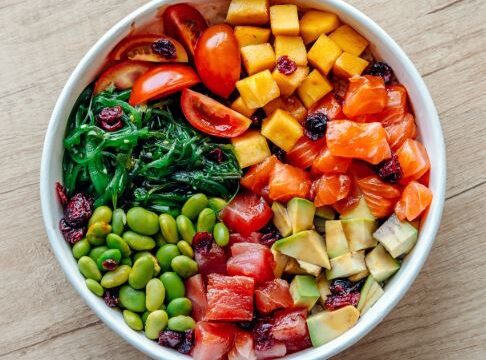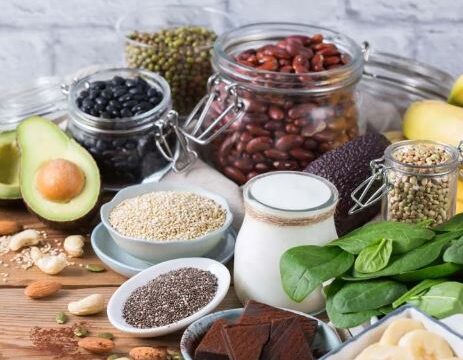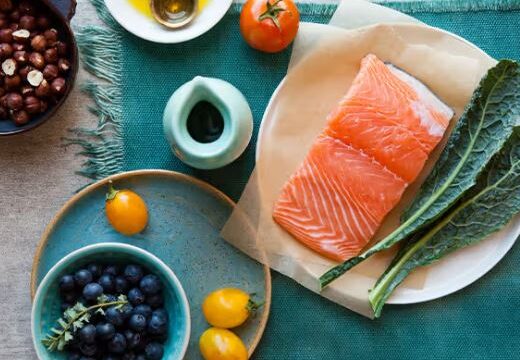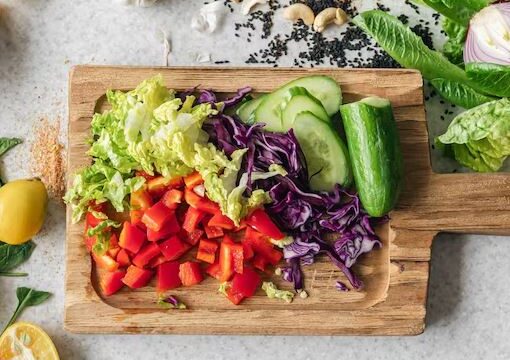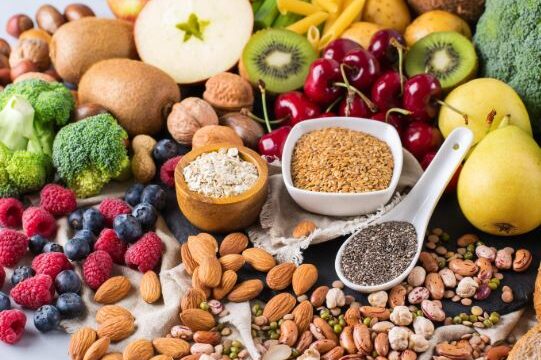Stress is something everyone experiences, whether it comes from work, family responsibilities, or unexpected life challenges.
While occasional stress is a normal part of living, ongoing tension can leave the body and mind feeling drained.
Emotional recovery is about giving yourself the space, time, and nourishment to restore balance.
Food plays a surprisingly powerful role in this process, not only providing the nutrients needed to rebuild physical energy but also supporting a calmer, steadier emotional state. By making thoughtful choices at the table, you can give yourself a gentle lift and promote resilience during stressful times. Why Food Matters in Stress Recovery When stress builds, the body releases hormones like cortisol and adrenaline. These prepare you for action but also put extra strain on your system. Over time, stress can affect digestion, sleep, and mood regulation. The right foods can help counter these effects by restoring nutrients, balancing blood sugar, and even encouraging the production of feel-good brain chemicals. Think of food as a foundation—it cannot solve every stressful situation, but it can make you stronger and steadier as you move through challenges. Choosing Comfort That Heals, Not Just Soothes During stressful times, many people crave comfort foods, often high in sugar or unhealthy fats. While these may provide temporary relief, they can also cause energy crashes or add to emotional ups and downs. A more supportive approach is to look for foods that feel satisfying but also nourish the body. Warm soups, oatmeal, roasted vegetables, and herbal teas can offer both comfort and stability. They provide steady energy without overwhelming your system. Foods That Steady Energy Levels Balanced blood sugar is one of the keys to emotional recovery. When blood sugar spikes and drops, mood often follows the same rollercoaster. Complex carbohydrates like whole grains, beans, and starchy vegetables release energy slowly, helping you stay even-keeled. Pairing these with lean proteins such as lentils, eggs, fish, or poultry can further extend that steady supply of energy. Adding healthy fats from sources like avocado, nuts, and olive oil helps the brain function smoothly, which is important when emotions feel raw. The Role of Nutrient-Rich Produce Colorful fruits and vegetables bring not only vitamins and minerals but also antioxidants that protect the body from the effects of stress. Berries, oranges, spinach, broccoli, and sweet potatoes are especially supportive. Their nutrients help lower inflammation, support the immune system, and restore balance in the nervous system. Making produce a central part of your meals can brighten both your plate and your outlook. Magnesium and Relaxation One mineral that deserves special attention during emotional recovery is magnesium. It supports muscle relaxation, helps regulate mood, and is often depleted by chronic stress. Foods rich in magnesium include leafy greens, pumpkin seeds, almonds, and black beans. Even a simple snack of a handful of nuts can be a small but meaningful way to restore calm. Omega-3 Fats and Emotional Balance The brain is made largely of fat, and certain types are especially important for emotional health. Omega-3 fatty acids, found in fatty fish like salmon, chia seeds, flaxseeds, and walnuts, help support healthy brain function. Studies have shown that omega-3s are linked to steadier moods and improved resilience to stress. Including these foods regularly may make emotional recovery smoother. Hydration and Stress Relief It is easy to overlook water when thinking about emotional wellness, but dehydration can worsen fatigue, irritability, and difficulty concentrating. Staying hydrated is one of the simplest ways to feel more grounded. Herbal teas such as chamomile or peppermint can be especially soothing, offering hydration along with a calming ritual. Even a glass of water with lemon can feel refreshing and supportive during recovery. The Comfort of Rituals Around Food Beyond nutrients, the way you approach eating can influence recovery. When you sit down to a meal in a calm setting, take a few breaths, and eat slowly, you give your nervous system a chance to shift out of “stress mode.” Creating small rituals, such as brewing a cup of tea in the evening or preparing a colorful salad for lunch, adds rhythm and care to your day. These practices remind you that food is not just fuel but a way of nurturing yourself. Limiting Stimulants and Quick Fixes Caffeine and sugary snacks are often tempting during stressful times because they provide a quick burst of energy. However, they can also intensify restlessness and make it harder to sleep. If you enjoy coffee, try limiting it to the morning and balancing it with food. Choosing natural sources of sweetness like fruit instead of processed treats can also help keep energy steady while still satisfying cravings. Bringing Joy Into Eating Stress can narrow focus and make life feel heavy. Choosing foods that bring joy can be an important part of recovery. This might mean preparing a favorite family recipe, exploring new flavors at a local farmer’s market, or treating yourself to a colorful smoothie. Allowing food to be a source of delight as well as nourishment helps lift your spirits and strengthens your emotional resilience. Practical Ways to Incorporate Stress-Supportive Foods Start small and simple. Adding an extra serving of vegetables to dinner, keeping a container of cut fruit in the fridge, or swapping chips for a handful of nuts are easy adjustments. Planning ahead can also ease the stress of decision-making. Preparing overnight oats for breakfast or cooking a batch of soup for the week ensures you always have something nourishing on hand. These little steps accumulate and help create an environment of care for your body and mind. The Bigger Picture of Self-Care While food is a powerful tool, emotional recovery from stress is most effective when combined with other gentle practices. Adequate rest, movement, time outdoors, and social support all work alongside nourishing meals. Think of food as one piece of a larger picture, helping to restore balance from the inside while other practices support you from the outside. Conclusion Recovering emotionally from stress takes patience, compassion, and consistency. Food cannot remove the sources of stress, but it can provide stability, comfort, and strength as you navigate challenges. By focusing on steady energy, nutrient-rich choices, and mindful eating, you give yourself a foundation for healing. Over time, these habits can help you feel more resilient, calm, and ready to meet life’s demands with renewed energy. In moments when stress feels overwhelming, sitting down to a wholesome meal can be one of the simplest and most powerful steps you take toward emotional recovery.

